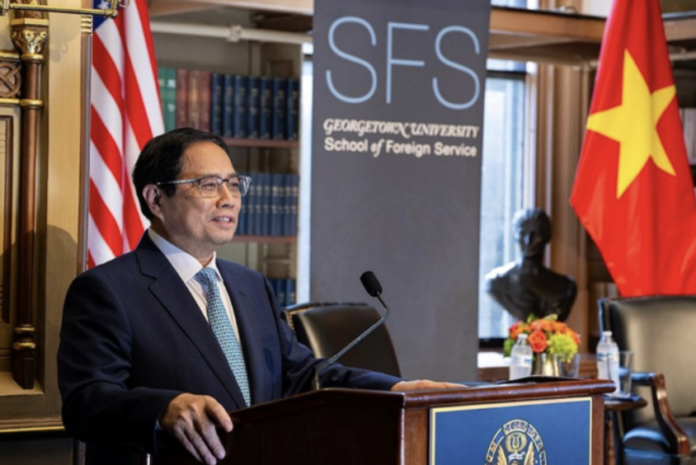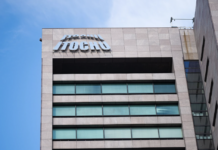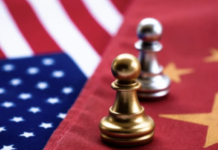![]()
Prime Minister Pham Minh Chinh of Vietnam visited Georgetown University’s Walsh School of Foreign Service on Sept. 19 to discuss the United States and Vietnam’s Comprehensive Strategic Partnership. The visit to Washington D.C. strengthened the U.S.-Vietnam relationship and followed President Joe Biden’s recent visit to Vietnam.
In his remarks, PM Chính elaborated on his vision for an independent, resilient and prosperous Vietnam, and he emphasized the role that the U.S. will play in achieving this goal. Besides focusing on the US-Vietnam partnership, he also provided his perspectives on multiple international issues such as climate change, international cooperation during the COVID-19 pandemic, etc. After the speech, PM Chính had a conversation with Professor Evan Medeiros about the role of Vietnamese people in the fight against the climate crisis. The conversation also included Vietnam’s greatest challenges in realizing its economic potential and its’ approach to centering itself in the world of quickly evolving technology. In the end, PM Chính communicated with Vietnamese students and took a photo with all the coming Georgetown students.
President Biden met with PM Chinh in Hanoi on Sept. 10. The U.S. elevated its relationship with Vietnam to a Comprehensive Strategic Partnership for peace, cooperation and sustainable development. The two leaders had a constructive conversation about US-Vietnam cooperation and exchanged perspectives on multiple topics including science technology, economic development, education and environmental issues. Both countries intended to enhance coordination on regional and global issues of mutual concern, one of them being China’s increasingly coercive behavior in the Indo-Pacific region.
The US National Security Strategy published by the Biden administration in 2022 aimed to promote a free and open Indo-Pacific. It affirms the freedom of the seas and builds shared regional support for open access to the South China Sea, an interest shared by both the U.S. and Vietnam. The new partnership is a signal to strengthen security in the Indo-Pacific region and restrain China’s behaviors.
Beijing, concerned about this new relationship, accused the U.S. of raising the specter of a new Cold War in Southeast Asia. China foreign ministry spokesperson Mao Ning contended that Washington is raising the hegemonic and Cold War mentality. President Biden disagrees.
“I don’t want to contain China, I just want to make sure we have a relationship with China that is on the up and up, squared away, everybody knows what it’s all about,” Biden said in Hanoi.
Biden’s policy is not new. The U.S. tried to enhance its influence early in this region during President Barack Obama’s administration. Obama made “The American Pivot to Asia” a priority, articulating an integrated diplomatic, military and economic strategy. Just 10 days after Obama was re-elected for a second term, he visited Asia. The strategy presented the U.S.’s determination to become a leader in Asia.
Even before the American Pivot to Asia strategy was proposed, the U.S. began to modernize alliances with multiple Asian countries including Japan, the Republic of Korea and the Philippines. The U.S. also initiated and formed the Quadrilateral Security Dialogue. The non-formal alliance composed of the U.S., Australia, India and Japan has intensified the security and economic ties as tensions with China rise. The navies of the four countries carried out joint military exercises in the Southern Pacific to restrain China’s assertive behaviors..
The new U.S.-Vietnam partnership is part of the long-term Indo-Pacific strategy. The U.S. continues its research searching for allies to enhance its leadership, trying to extend its crucial role within the region starting from the 2010s. And for Vietnam, this partnership ties the relations with the U.S. and leans from its previous neutral position. Vietnam pursues multidirectional foreign policy and has a comprehensive strategic partnership with China and Russia.
This unprecedented elevation in diplomatic relations with the U.S. signals Vietnam’s great concern about China’s increasing aggression in the Indo-Pacific. The new partnership conveys to Beijing that the U.S. is fully aware of China’s ambition in the Southern Pacific. Moreover, the U.S. will not step down —The U.S. and its allies are ready to compete with China.












